Ali Paikan
A representation of robotic behaviors using component port arbitration
Dec 16, 2014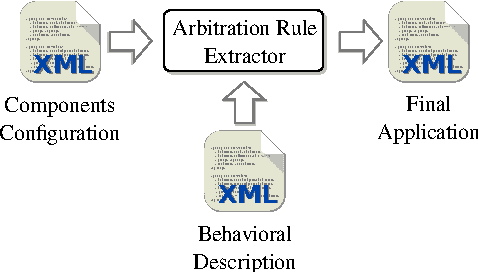
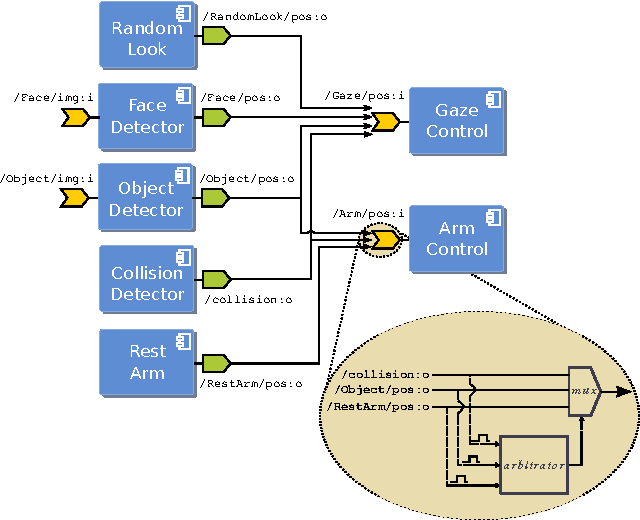
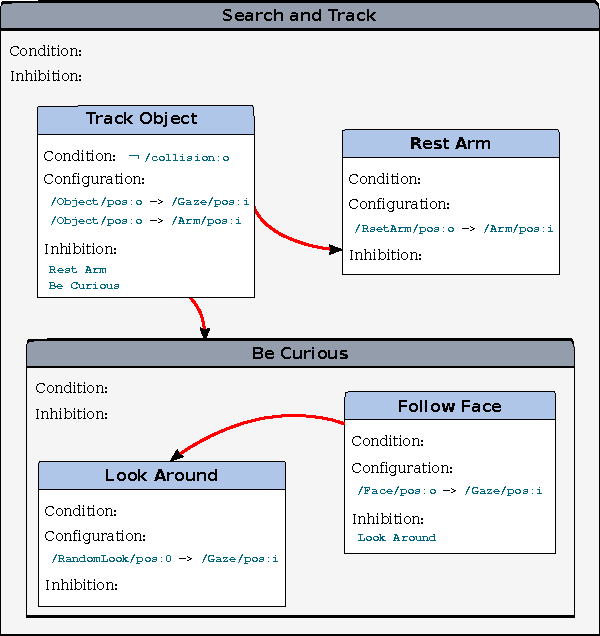
Abstract:Developing applications considering reactiveness, scalability and re-usability has always been at the center of attention of robotic researchers. Behavior-based architectures have been proposed as a programming paradigm to develop robust and complex behaviors as integration of simpler modules whose activities are directly modulated by sensory feedback or input from other models. The design of behavior based systems, however, becomes increasingly difficult as the complexity of the application grows. This article proposes an approach for modeling and coordinating behaviors in distributed architectures based on port arbitration which clearly separates representation of the behaviors from the composition of the software components. Therefore, based on different behavioral descriptions, the same software components can be reused to implement different applications.
Enhancing software module reusability using port plug-ins: an experiment with the iCub robot
Nov 04, 2014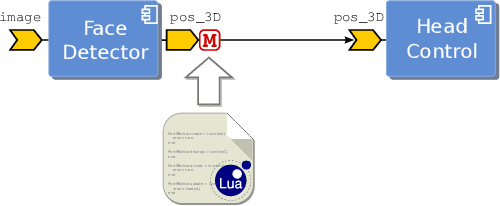
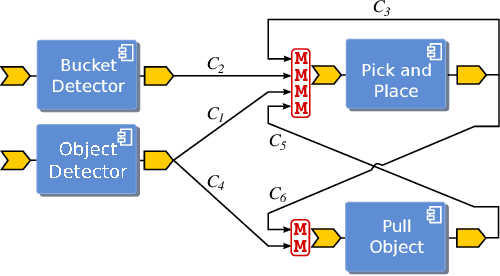
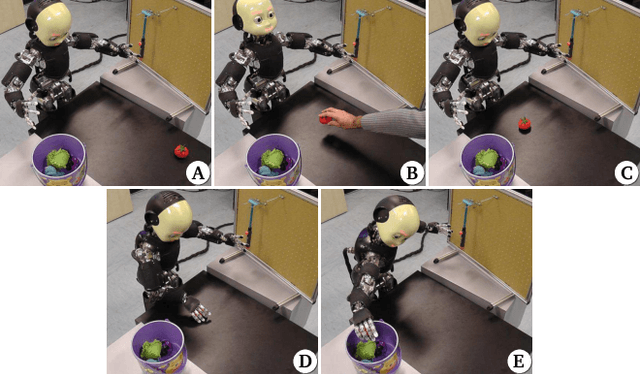
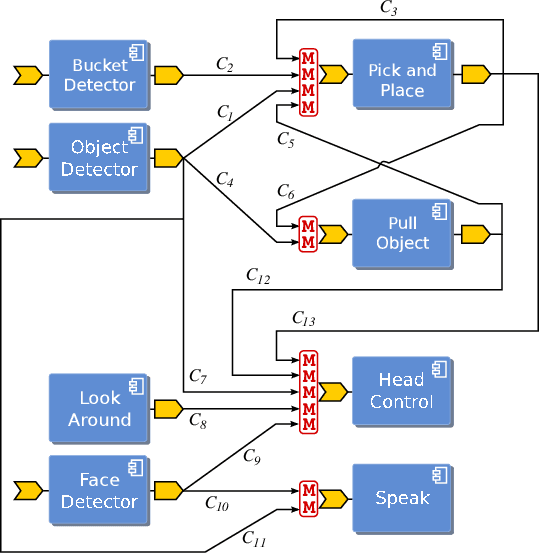
Abstract:Systematically developing high--quality reusable software components is a difficult task and requires careful design to find a proper balance between potential reuse, functionalities and ease of implementation. Extendibility is an important property for software which helps to reduce cost of development and significantly boosts its reusability. This work introduces an approach to enhance components reusability by extending their functionalities using plug-ins at the level of the connection points (ports). Application--dependent functionalities such as data monitoring and arbitration can be implemented using a conventional scripting language and plugged into the ports of components. The main advantage of our approach is that it avoids to introduce application--dependent modifications to existing components, thus reducing development time and fostering the development of simpler and therefore more reusable components. Another advantage of our approach is that it reduces communication and deployment overheads as extra functionalities can be added without introducing additional modules.
 Add to Chrome
Add to Chrome Add to Firefox
Add to Firefox Add to Edge
Add to Edge